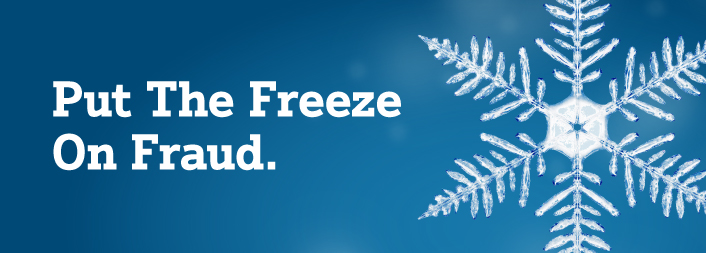What You Need to Know About Fraud in 2020.

It’s chill-time in Nebraska. So, kick back in your new slippers and catch up on some important news about fraud. It’s a smart way to start the new year.
We all know that criminals continue to find creative new ways to steal, so good folks need to stay one step ahead. Below are just a few of the common tactics fraudsters are using nowadays and a dozen ways to help protect your data and identity.
Phone Calls, Phishing and Fakes.
You answer the phone, and the person on the line claims he’s calling from the Social Security Administration or the IRS. Of course, he needs your personal information immediately. Phone scams are common, and with robocalls out of control, we’re all susceptible.
“Phishing” is another common tactic in which scammers try to steal your info through an email, an online advertisement or a pop-up. Most of us know to ignore email spam, but sometimes it seems like a notification or ad is coming from a company we know––when really it’s a fake. You might also be approached by a fake friend on social media or in an app.
Not only are thieves trying to steal your money, more and more, they’re trying to steal your entire identity. With just a little information, they can open a credit account under your name. Imagine the bills they could rack up in no time.
12 Ways to Help Prevent Fraud.
1) Never open an email you are unsure of. Do not open, do not click on links, do not even “unsubscribe.” Did you know when you open an email or click to unsubscribe, you may very well be notifying a fraudster that your email address is active, which could ultimately increase spam in your inbox? It’s best to delete spam emails without even opening them.
2) Only use secure, familiar websites. Buy online with caution by making sure you use reputable websites. And look for the “https” (not just http) in the url, the “s” meaning secure.
3) Never give info over the phone, unless you make the call yourself. If someone calls and asks for information, hang up immediately. Don’t tell them a thing. Especially keep your Social Security number to yourself––even the last four digits. If you’re concerned, call the company or organization directly. Keep in mind: The Social Security Administration and the IRS will never call you; they will send you written notices.
4) Use credit cards for online transactions, rather than debit. If a debit card number is stolen, your full account is at risk. Better to buy online using a credit card with a low available amount of credit, such as $500. That way, it’s the maximum a thief could get away with.
5) Use the Debit Card On/Off feature. With the Farmers & Merchants Bank app, you can immediately turn off your debit card to freeze your account in case your card is ever misplaced, lost or stolen. When you find the card, you can instantly switch it back on.
6) Change your passwords often. It’s a hassle, but complex, often-changed passwords are the safest way to keep your accounts protected and stay a few steps ahead of cyberthieves.
7) Review account statements at least once a month. If you have online access to your statements, check them more often to make sure all transactions are valid. The earlier you discover a breach, the quicker you can protect yourself. Accounts to track include checking, savings, debit cards, credit cards and digital payments.
8) Make sure digital payments are safe. In the age of person-to-person (aka peer-to-peer) app payments such as Venmo™, your accounts can be vulnerable. Rather than going through an app to pay friends and family, use the Farmers & Merchants Bank P2P system, designed with extra security so that no one can ever charge your account or withdraw money without your permission.
9) Send personal data via email using a secure link. If you must email important data, such as when applying for a mortgage, ask for a secure link where you can upload your files. It’ll help prevent your info from being intercepted in an email.
10) Shred, shred, shred. It’s good old-fashioned protection. Don’t throw away important papers of any kind. Shred them with a shredder that “crosscuts” your documents into tiny pieces that can’t be re-assembled.
11) Check your credit report for irregularities. Look for unfamiliar accounts and balances that are larger than expected. It’s important in the age of identity theft to sift through your credit reports at least a couple times per year.
12) Freeze new credit at all three agencies. To prevent anyone from opening an account in your name without your permission, contact all three credit reporting bureaus (Equifax®, Experian®, and TransUnion®) and put a freeze on your credit. For no charge, they’ll freeze your accounts until you decide to un-freeze them. This will not affect any of your current accounts, only new ones.
Brrrr, you can stop fraud in its tracks when you’re in the know. We hope this information helps you have a happier 2020, knowing you’re a little smarter when it comes to your finances. Cheers!
